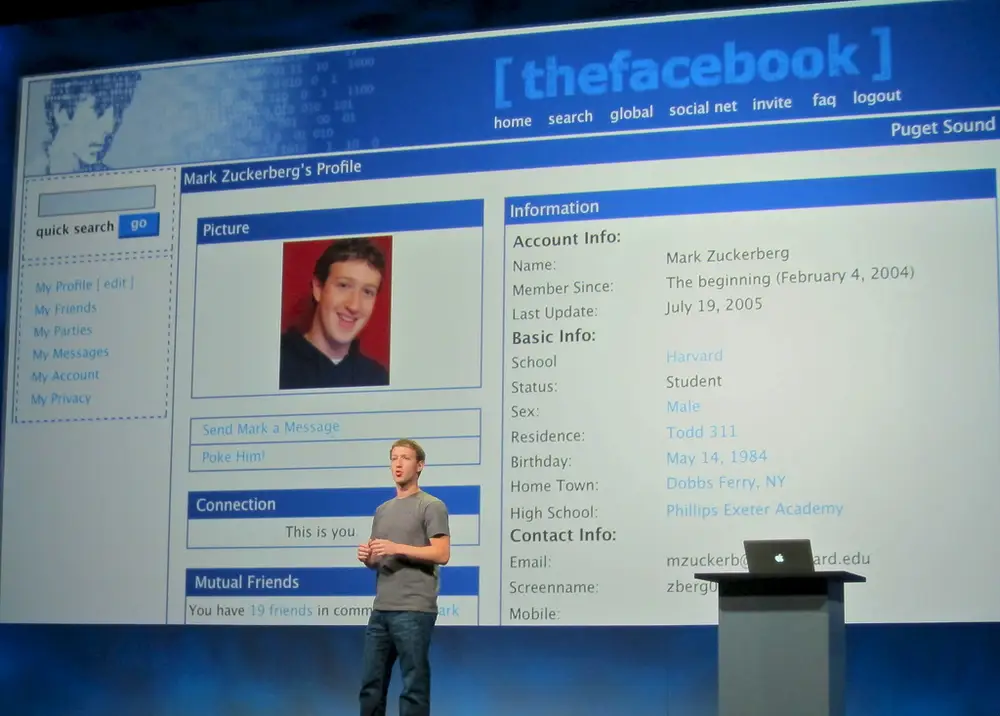You are either a wandering generality or a meaningful specific.
To be successful, you need to understand that you cannot be all things to all people. Us marketers call this the 'everything trap'. Instead, you must focus on what makes your brand unique and relevant to a specific group, and then make sacrifices by excluding other potential customers that may not align with your brand's values or value proposition.
Tip of the iceberg
Effective positioning is like an iceberg. Above the waterline, your position should clearly and concisely identify your unique role and relevance in the next year or two, and it should only focus on spaces you can dominate in the near term.
Attempting to communicate what's below the waterline, such as your sales, adoption strategy or long-term vision, will likely fall on deaf ears. To avoid this dangerous trap of trying to be all things to all people, you must be willing to sacrifice. You have to say no to certain audiences. Every "no" is a deeper "yes" towards the audience that matters the most.

To outline your positioning strategy, start by asking two important filtering questions:
- who are we actually going to go after?
- And who are we NOT going to go after (for now)?
By focusing on a specific target market and tailoring your messaging and marketing efforts to their needs and preferences, you can establish a clear and compelling brand positioning that resonates with your customers and sets you apart from the competition.
Effective positioning is about making deliberate choices and sacrifices. By focusing on what makes your brand unique and relevant to a specific group of customers, you can establish a more robust and defensible market position that can lead to higher profitability and sustained growth over the long term.
So don't try to be everything to everyone. Focus on your core audience and communicate your unique value proposition in a clear and compelling way.
Status games
For example, if you are a luxury brand, you may need to sacrifice the mass market audience to maintain the exclusivity and premium value of your brand. This means that you may need to price your products higher, limit distribution channels, and focus your marketing efforts on a select group of high-end consumers. By making these sacrifices, you can establish a clear and compelling brand positioning that resonates with your target audience and sets you apart from the competition.
It is smarter to target a specific market because it allows you to focus your resources and efforts on a group of customers or users that are most likely to buy or adopt your products or services. By targeting a specific market, you can tailor your messaging and marketing efforts to the specific needs and preferences of that group, which can lead to higher conversion rates and stronger loyalty.
Be deceptively small
It's a common misconception that the biggest technology organizations started out with grand market positions. In fact, these companies often began deceptively small. For instance, Facebook began as a social network exclusively for Harvard students, while Netflix started out as a DVD-by-mail service. Amazon's original position was to become the leading online retailer for books.

However, these companies didn't stay small for long. By focusing on a narrow market niche and delivering exceptional value to their customers or users, they were able to gradually expand their market position and become industry giants. Facebook grew into the world's largest social network, while Netflix pivoted to become an internet streaming service. Amazon, meanwhile, leveraged its success in the book market to become the everything store.

This approach of starting small and gradually expanding your market position has proven to be a winning strategy for many of the world's most successful technology companies. By focusing on a specific niche and delivering exceptional value to your customers, you can establish a strong foundation for future growth and expansion.
So don't be afraid to start small and focus on a narrow market segment.
Position narrow, catch wide
Brands should position narrow and catch wide because it allows them to focus on a specific audience and communicate their unique value proposition in a clear and concise way. By targeting a specific niche, a brand can differentiate itself from competitors and become the go-to choice for that particular audience.
Once a brand has established itself in its niche market, it can then expand its reach and catch wider by leveraging its strengths and success to attract a broader audience. Hence, you reveal more of the waterline. This approach helps brands to avoid the common mistake of trying to be all things to all people, which often results in diluted messaging and a lack of clear differentiation.
Positioning narrow and catching wide is a strategic approach that allows brands to build a strong foundation and establish themselves as a leader in their niche, while also providing the flexibility to adapt and grow as they expand their reach.
Connect deeper
By targeting a smaller, more defined market, brands can tailor their messaging and offerings to meet the unique needs and preferences of that audience. This can help them establish a deeper connection with their customers and differentiate themselves from competitors in a crowded marketplace.
Positioning in a niche market can help brands establish themselves as experts or thought leaders in their field, which can enhance their credibility and reputation. It can also make it easier for them to expand into adjacent markets as they grow and develop.
Sacrifice to find your position, so that you may connect your brand at the deepest levels.

